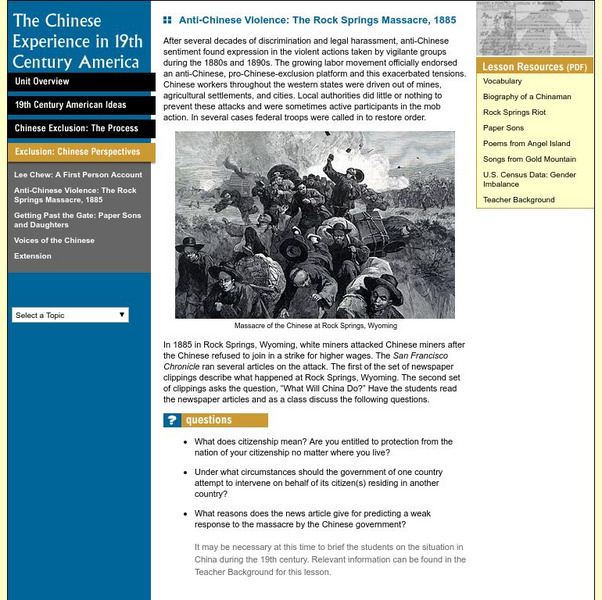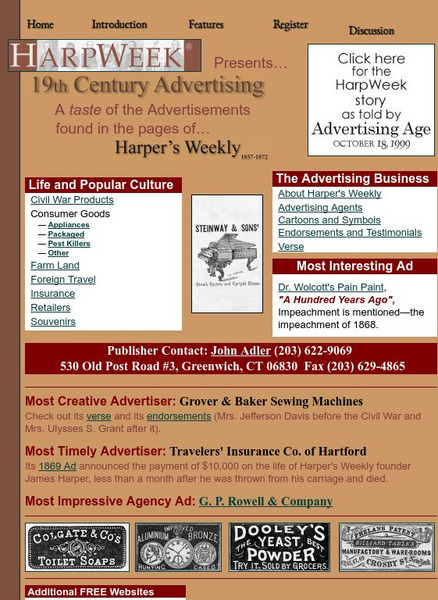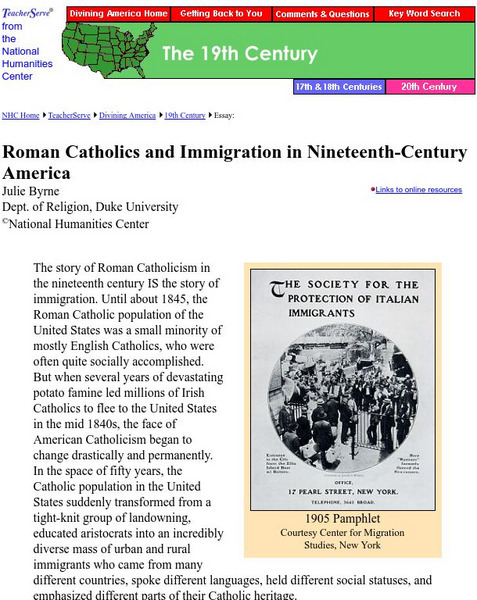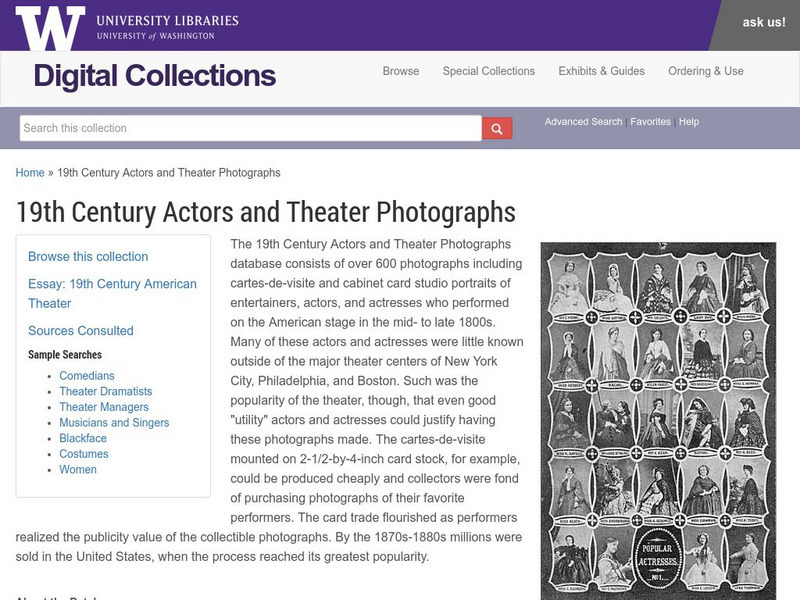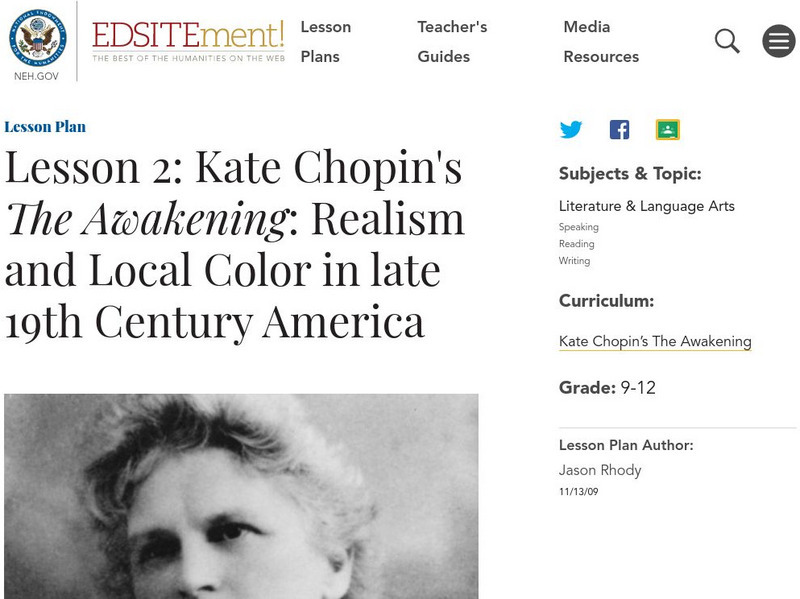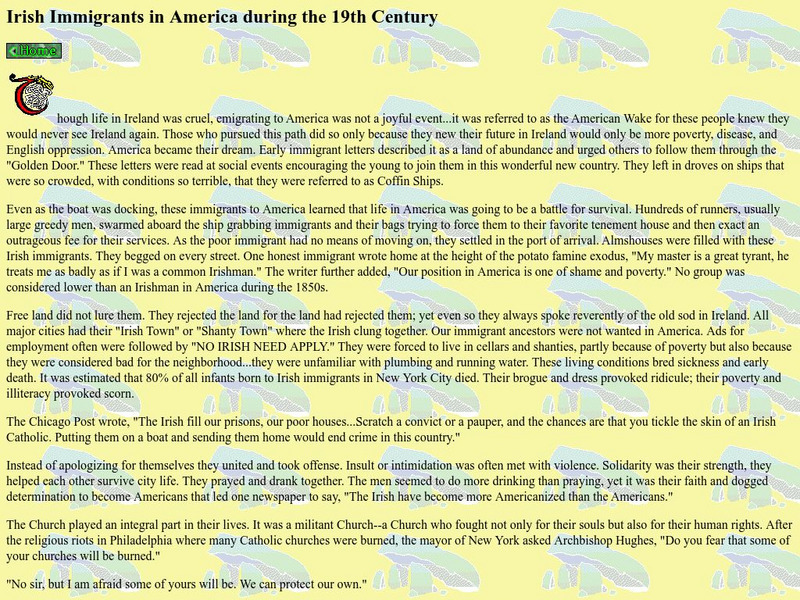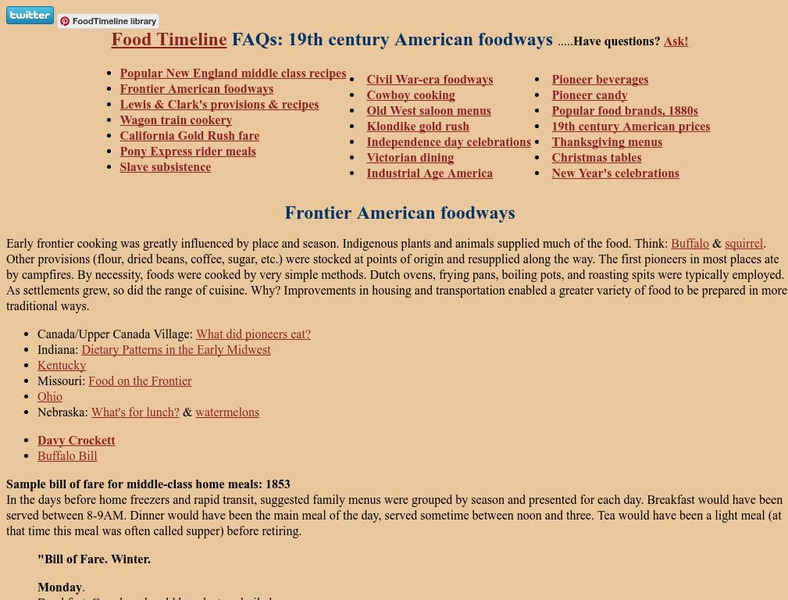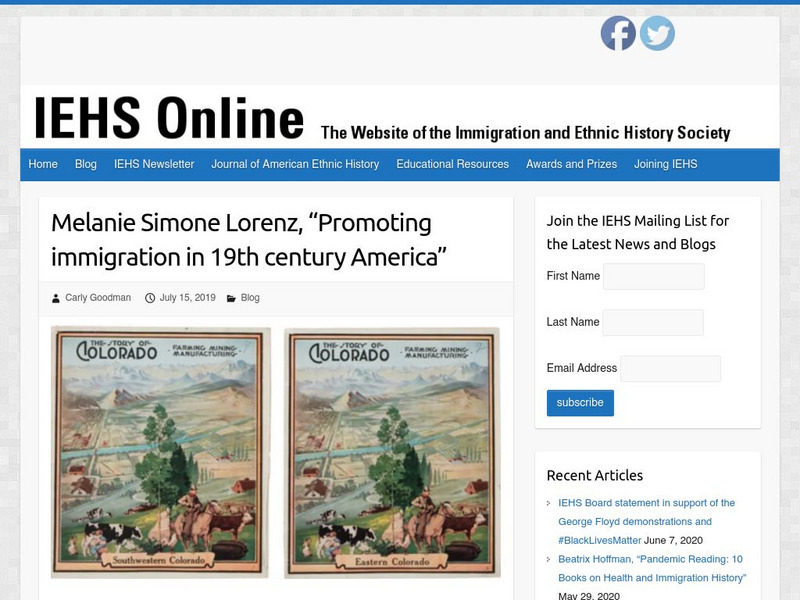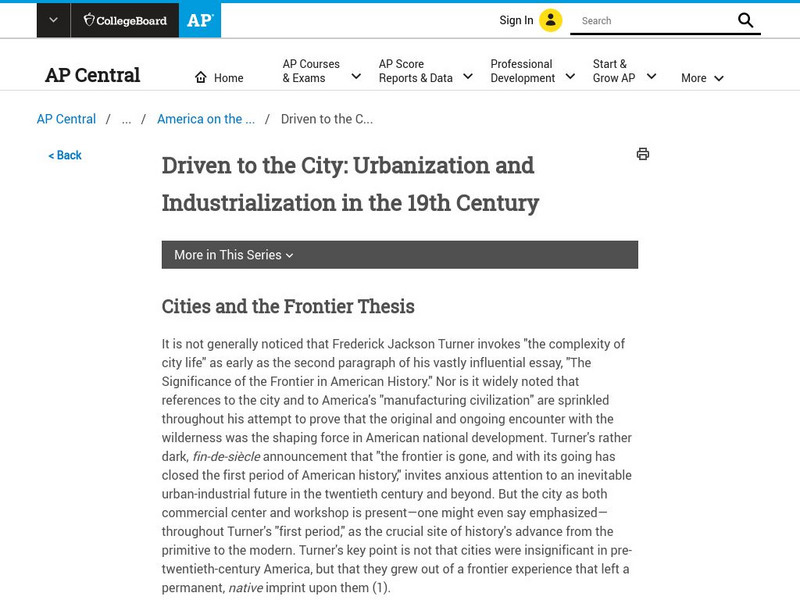Maine Historical Society
Maine Historical Society: How 19th Century Artists Viewed the Separation of Civilization and Nature
Combining art and literature, this instructional activity takes a look at how artists drew the line between civilization and wilderness in 19th century America.
Boston College
Boston College: 19th Century Skyscrapers
This site has many images of skyscrapers from the 19th Century made possible by steel technology.
Ministry of Education and Employment of Spain
Si Spain: The 19th Century
This resource provides a medium length article detailing the 19th century from the angle of its relation to Spain.
University of Alberta
Eas: A Gallery of 19th Century Icelandic Landscape Art
This website provides images of 19th century landscapes of various parts of Iceland. Images links to larger images for viewing purposes.
Washington State University
Washington State University: Introduction to 19th Century Socialism
This article discusses the origin of 19th-century socialism. Discusses the Enlightenment, Industrial Revolution, social classes, Karl Marx and labor unions. An in-depth article.
Other
West Chester University: Egypt & Europe in the 19th Century
A scholarly article that examines the history of Egypt during the period of imperialism. The author provides a good explanation as to why Egypt fell under the British sphere of influence by the late 19th century.
University of Illinois
University of Illinois: The Chinese Experience in 19th Century America: The Rock Springs Massacre
This lesson plan is from a larger site examining the Chinese Experience in the United States in the 19th century. Discover the role the official support by the labor movement played in the discrimination, and in the case of the Rock...
Harp Week
Harp Week: 19th Century Advertising
A collection of the advertisements that were published in Harper's Weekly between 1857 and 1872.
National Humanities Center
National Humanities Center: Teacher Serve: 19th Century: Roman Catholics & Immigration in 19th Century America
Essay answers the question, "Why did so many Catholics come to the United States at this time?" The potato famine, urban industrialization, chance for a new life, are among some of the answers.
University of Washington
University of Washington Libraries: 19th Century Actors Photographs
Database of over 600 photographs of actors, actresses, and entertainers of the nineteenth century who performed in the United States.
PBS
Pbs Learning Media: Primary Source Set: Steam Engine: Transportation 19th Century
This collection uses primary sources to explore the steam engine and transportation in the nineteenth century.
PBS
Pbs Learning Media: Primary Source Set: 19th Century Schools for the Deaf, Blind
This collection uses primary sources to explore the development of schools for deaf and blind students in the nineteenth century.
National Humanities Center
National Humanities Center: Teacher Serve: 19th Century: African American Christianity, Pt. I: To the Civil War
Essay tracks the various religions associated with the African-Americans since their introduction to the New World. Different interpretations from historians are offered for discussion of whether Christianity was helpful to the slaves.
National Endowment for the Humanities
Neh: Edsit Ement: L2: Chopin, Realism, Local Color in Late 19th Century America
In this lesson plan, learners will consider Lesson 2: Kate Chopin's The Awakening: Chopin, Realism, and Local Color in late 19th Century America. Worksheets and other supporting materials can be found under the Resources tab.
Boston College
Boston College: 19th Century Painting
This site, which is provided for by the Boston College, is an index for artists during the 19th century.
Other
Chesapeake College: 19th Century Education
Information about education in 19th century America, and the movement to develop a public education system. Has quite a few links to other sites and to some primary resources. Some of the links no longer work, but might be located by...
Other
Kinsella Homepage: Irish Immigrants in America During the 19th Century
This site gives insight into what life was like for Irish immigrants who came to America during the 19th century.
Calisphere: University of California Libraries
University of California: Calisphere: 1870 1900: Everyday Life and People
Primary source photos depicting what life was like out west and in California in the late 19th century.
Other
Food Timeline: 19th Century American Foodways: Cowboy Cooking
Find some recipes for 19th century cowboy food, menu suggestions for creating cowboy cook-outs at the elementary, middle and high school levels, and many suggestions about other information sources.
Immigration and Ethnic History Society
Iehs: Melanie Simone Lorenz, "Promoting Immigration in 19th Century America"
This blog focuses on the U.S.'s need for immigration in the 19th and early 20th century to satisfy particular labor needs and increase investments.
National Humanities Center
National Humanities Center: Teacher Serve: 19th Century: Evangelicalism, Revivalism, and the Second Great Awakening
The National Humanities Center offers a thorough text describing the roots and results of the Second Great Awakening. Additional web links and guide for student discussion.
The College Board
Driven to the City: Urbanization and Industrialization in the 19th Century
Scholarly article discussing the trend towards urbanization in the United States and other industrialized countries in the nineteenth century.
PBS
Wnet: Thirteen: Wake Up, America: New Modes of Transport in 19th Century America [Pdf]
A lesson plan from the producers of the 16-episode PBS series "Freedom: A History of US" that examines how new technology and scientific advances of the nineteenth century changed America. Includes ideas for directing young scholars...
Immigration and Ethnic History Society
Iehs: Kevin Kenny, "Insiders & Outsiders in 19th Century American Immigration"
This article focuses on the history of who were the insiders (with rights) and the outsiders (without rights) in the early history of the US (prior to the 14th Ammendment. It was largely based on race not citizenship.
Other popular searches
- 19th Century Inventions
- 19th Century Immigration
- 19th Century America
- 19th Century Child Labor
- 19th Century Farming
- Women's Rights 19th Century
- 19th Century Music
- 19th Century Inventors
- 19th Century Clothing
- 19th Century u.s.a
- 19th Century Immigration
- Late 19th Century America






